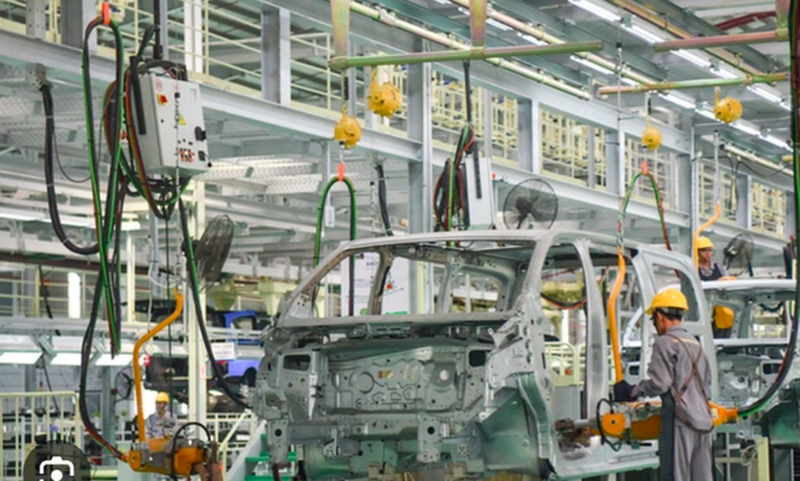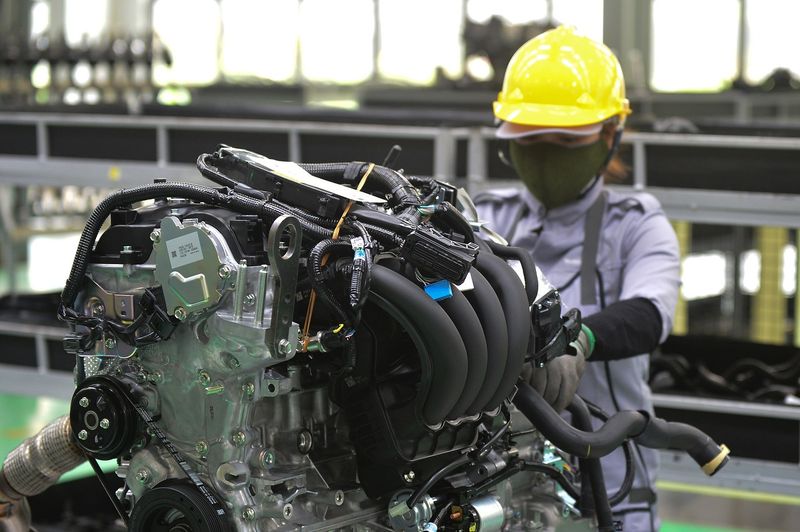Reducing registration fees for domestically produced and assembled cars may lead to Vietnam violating international commitments.
Recently, the Ministry of Finance proposed to the Government to consider not reducing registration fees (RF) for domestically produced and assembled cars.
Based on the evaluation of the effectiveness of the 50% reduction in RF for domestically produced and assembled cars in the past, the Ministry of Finance stated that this policy has had a positive impact on the automotive industry in Vietnam, encouraging people and enterprises to purchase such cars to serve their consumption and production-business needs.
According to the Ministry of Finance, in 2024, the world situation continues to evolve complexly and unpredictably, with many difficulties and challenges.
Domestically, the economy tends to recover positively in most fields. Macroeconomic stability is maintained, and inflation is controlled. Although economic growth has achieved positive results, it still faces challenges from inflationary pressures and exchange rate tendencies. The financial and monetary markets still pose risks, and the production and business activities of enterprises and individuals encounter difficulties. Therefore, policies to reduce taxes, fees, and charges are necessary to help ease difficulties in production and business.
However, after consulting with the Ministry of Planning and Investment, the Ministry of Justice, the Ministry of Industry and Trade, and relevant ministries and sectors, the Ministry of Finance stated that the draft reduction in registration fees for domestically produced cars might cause Vietnam to violate international commitments, leading to the risk of being fined or retaliated against by countries to which Vietnam exports goods.
In its report to the Government, the Ministry of Finance proposed two options:
Option 1: Do not reduce the RF for domestically produced and assembled cars.
Option 2: Reduce the RF by 50% for domestically produced and assembled cars for six months.
Based on the analysis of the advantages and disadvantages of each option, the Ministry of Finance proposed to implement Option 1.
However, in Notification No. 264/TB-VPCP dated June 19, 2024, Deputy Prime Minister Le Minh Khai agreed with the meeting’s opinions to submit to the Government the regulation on reducing RF for domestically produced and assembled cars, following Resolution No. 44/NQ-CP. This decision maintains the plan to reduce registration fees.
The Ministry of Finance needs to supplement the content of the analysis and assessment of impacts to ensure that it is comprehensive and consistent (impact on state budget revenue, impact on production and business activities of enterprises, the level of violation of commitments, the possibility of complaints and lawsuits) and report to the Government. With this updated information, the Government will develop a response plan in case Vietnam is sued for violating international commitments.
Since the COVID-19 pandemic, the Ministry of Finance has reduced RF for domestically produced and assembled cars three times (in 2020, 2021, and 2023), each lasting for six months.
Thai Son (Tuoitrethudo)
The Perfect Ford Ranger 2022: The King of Pick-up Trucks
Immediately after the successful launch of the Ford Everest, the popular SUV model that caused quite a stir, Ford Ranger seizes the opportunity to update and release a completely new version. With this exciting development, it is poised to maintain its dominance in the pickup truck segment in Vietnam.
































![[CAR REVIEW] The Newly Launched BMW iX3 in Vietnam: Compact, Practical, and Expensive](https://vnauto.net/wp-content/uploads/2023/10/xehay-bmwix3-01082023-9-150x150.jpg)

![[CAR REVIEW] Wuling Mini EV: Affordable, Compact, Convenient, but…](https://vnauto.net/wp-content/uploads/2023/10/xehay-wulingev-16062023-8-150x150.jpg)












